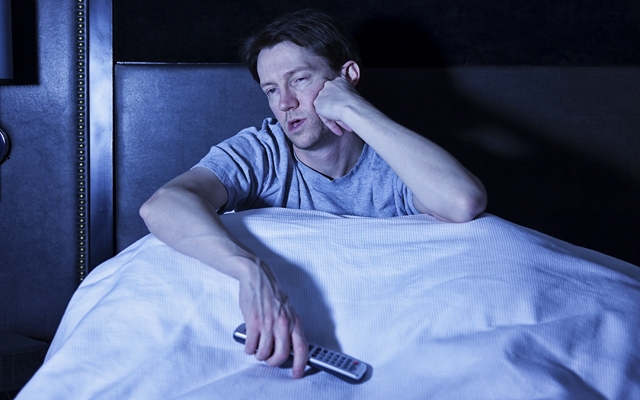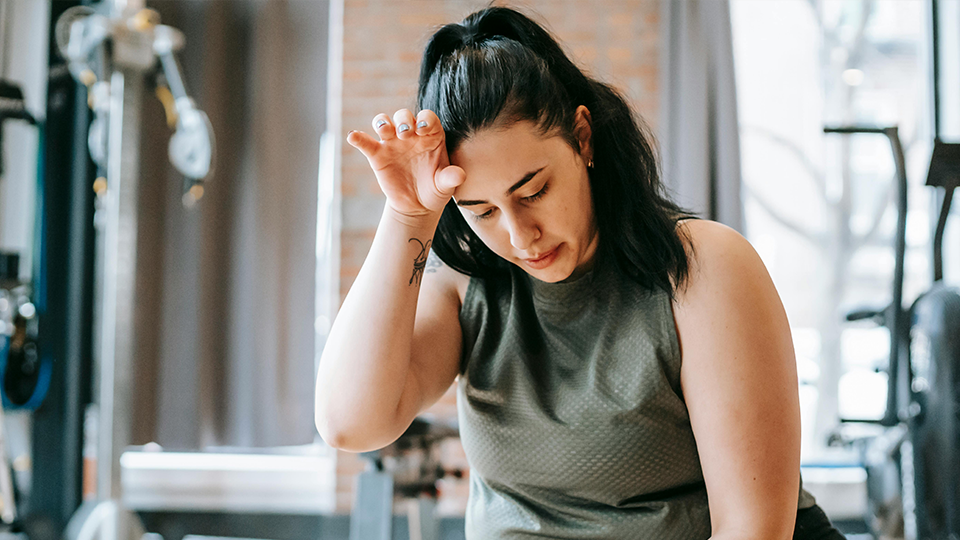If you’re like 40 percent of all Americans, according to a recent Gallup Poll, you’re not getting your recommended seven to nine hours of sleep daily (1). The answer? Run or bike (preferably in the morning) and weight train daily. (It doesn’t matter what time, day or night.)
The majority of athletes already do some sort of weight training, along with other exercise, and tend to sleep better than most people. Now, new research is starting to reveal why that’s the case physiologically, which could mean profound sleep benefits for anyone.
After all, most athletes recognize that lack of sleep or poor sleep is awful for recovery after exercise. It’s worse than that — it’s just plain unhealthy. For the majority of the population, sleep problems are linked to weight gain, lack of cardiovascular fitness, and poor management of blood sugar and blood pressure (2). (See the article Athletes, How Do You Sleep at Night? for more information on different recommendations for athletes to improve their sleep.)
Last December researchers at Appalachian State University compared how different endurance exercises and timing affected sleep quality (3). The researchers found that exercising earlier in the day (7 a.m.) led to the most positive changes in terms of nighttime blood pressure and sleep quality.
But what about resistance training? To answer this, these researchers performed another study this time evaluating weight training and how it affected sleep quality in college students (4).
Recently published in the Journal of Strength and Conditioning Research, the scientists randomized subjects to perform 30 minutes of resistance training daily at different times (7 a.m., 1 p.m., and 7 p.m.) over several days. The subjects also went one day without any resistance exercise – a “control day”. Then the researchers once again looked at measures of sleep quality including nocturnal blood pressure and duration of sleep.
The researchers found that resistance exercise led to significantly better sleep quality compared to their non-resistance training control day. Even the 7 p.m. trial resulted in significantly less time awake after initially falling asleep compared to the control day.
These findings indicated that timing of resistance training does not make a significant impact on sleep quality or nighttime blood pressure and moreover, suggested that weight training at any time of the day may improve quality of sleep.
According to lead author Jessica Alley daily exercise betters sleep, helps maintain muscle, strengthens bones, and improves cardiovascular health.
In conjunction with proper exercise, Isagenix provides additional tools to improve sleep quality. For instance, Sleep Support and Renewal contains a proprietary blend of natural herbs and the amino acid L-theanine combined with fast-acting melatonin to naturally help reset your sleep clock. Also, for some individuals, the calming presence of adaptogen-rich Ionix Supreme can facilitate better sleep as well.
References:
- http://www.gallup.com/poll/166553/less-recommended-amount-sleep.aspx
- Buxton OM, Marcelli E. Short and long sleep are positively associated with obesity, diabetes, hypertension, and cardiovascular disease among adults in the United States. Soc Sci Med 2010;71:1027-36.
- Fairbrother K, Cartner B, Alley JR et al. Effects of exercise timing on sleep architecture and nocturnal blood pressure in prehypertensives. Vasc Health Risk Manage 2014;10:691.
- Alley JR, Mazzochi JW, Smith CJ, Morris DM, Collier SR. Effects of Resistance Exercise Timing on Sleep Architecture and Nocturnal Blood Pressure. J Strength Cond Res 2015;29:1378-85.





